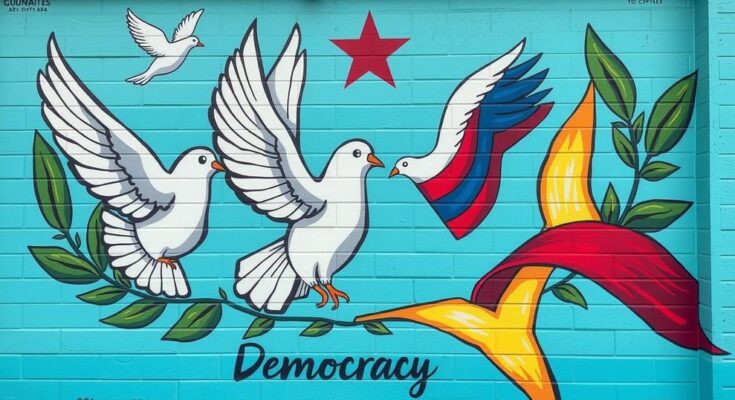In light of growing threats to Canadian democracy, particularly from external pressures like those from U.S. President Donald Trump, activists living in exile could prove essential to bolstering national resilience. While Trump’s tariffs and divisive language have triggered a surge of nationalism, true independence involves unwavering dedication to core democratic values—respect for human rights, free governance, and inclusivity—to ensure all voices are acknowledged and heard.
Canada has long been a sanctuary for those opposing oppressive regimes. Activists-in-exile, forced to flee due to their commitment to human rights, democratic ideals, and accountability, carry invaluable experiences and resilience. Their expertise in governance and social justice could greatly assist Canada in navigating the tumultuous global landscape, also providing support for peacebuilding and sustainable development.
These courageous individuals remain pivotal in global democratic efforts while often struggling with the challenges of displacement. Unlike diaspora communities that may focus on cultural heritage, activists-in-exile leverage their circumstances to engage in political advocacy, counteract foreign manipulation, and galvanise support for democratic initiatives.
The project Voices in Exile highlights the contributions of these activists and advocates for policies that recognize their transformative role in ensuring justice and human dignity. Their advocacy continues to reshape public debates, championing women’s rights, calling for accountability, and fighting for freedom of expression, influencing both Canadian and international policies.
Nevertheless, despite their significant potential, activists-in-exile frequently face skepticism or neglect in Canada. Political discourse can reduce their patriotism to economic security, deterring genuine recognition of their past struggles. Statements from figures like Pierre Poilievre, suggesting newcomers abandon their histories, overlook the complexities of their situations and ongoing connections to the communities they left behind.
At Voices in Exile, we have observed that many of these activists leave behind family and careers, confronting daunting obstacles in their new lives. While some manage to thrive, their full potential is often curtailed by systemic constraints. Rather than viewing them merely as victims or risks, Canada must recognize their expertise as an asset in the fight against authoritarianism.
Investing in activists-in-exile would not only honour their sacrifices but also augment Canadian democracy, offering innovative perspectives in education, policy, and economic contributions. Many exiles grow to become influential figures in various sectors, advocating for democracy worldwide and aligning with Canada’s historic commitment to promoting democratic values.
Yet, to genuinely harness this potential, Canada lacks a tailored approach to engage with these individuals upon arrival. A strategic framework is required to facilitate collaboration between activists-in-exile and Canadian entities, ensuring their voices influence foreign policy. Establishing a legal structure and dedicated funding would empower their activism, allowing Canada to reaffirm its role as a leader in democracy.
As the shadows of global authoritarianism lengthen, Canada faces a critical choice: to either acknowledge and support activists-in-exile or risk diminishing its democratic legacy by neglecting the wisdom they can offer.
Canada faces increasing threats to its democracy, particularly from foreign influences. Activists-in-exile, who are often overlooked, can strengthen Canadian values through their advocacy for human rights and governance. The initiative Voices in Exile seeks to elevate their contributions and integrate them into Canadian society. However, without tailored policies and support systems, their potential is underutilised. There is an urgent need for Canada to recognise these activists as crucial allies in fortifying democracy.
Activists living in exile hold immense potential to bolster Canada’s democracy through their expertise and resilience. By providing tailored support and engagement, Canada can integrate their invaluable knowledge into its democratic framework, strengthening its commitment to human rights and global leadership. As authoritarianism rises globally, recognising and supporting these activists is not merely a matter of principle but a strategic investment in a more resilient democratic future.
Original Source: theconversation.com



